Analyst Course
The year-round schedule for the students in the Analyst Course in which students learn the methods of identifying problems and their causes by analyzing the actual conditions of multicultural communities
The year-round schedule for the students in the Analyst Course in which students learn the methods of identifying problems and their causes by analyzing the actual conditions of multicultural communities
Attitudes that go beyond fixed ideas and that address conventional ideas.
I think this attitude will lead to resolving many problems.
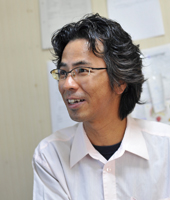
Domiciliary Care Company, Peer Suport, LLC
Person in charge of providing nursing care services, Home Helper 1st Grade certificate
Person in charge of providing nursing care services, Home Helper 1st Grade certificate
Motohiro Sonoda
■ Profile
Lives in Kiryu City, Gunma Prefecture. Mainly studied cultural anthropology (fusion and clashes among cultures) at a university in Hawaii. Began to question many of the social problems because of his experiences in Hawaii as a foreigner, and has worked to answer these questions. As a pyrotechnist himself, supported a fireworks festival in Macao, in conjunction with pyrotechnists from all over the world.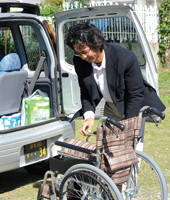
● Why I enrolled
When I was studying abroad, I experienced problems related to regulations with foreign workers and other social problems, resulting in my having questions concerning the various problems connected with internationalization. I assumed that the number of foreign workers would increase in Japan to secure the labor force, and I was also interested in the resulting social situations. This was the reason for my decision to take this program. Also, last year I married a foreigner and I became keenly aware of the difficulties foreigners experience while living in Japan. This was the other reason for my decision to take this program.● A supportive family and thoughts for the future
It takes 160 minutes for my round-trip commute to school from Kiryu City. Thanks to my wife's support, I can take this program. I intend to contribute to my community. I think that attitudes that go beyond fixed ideas and that address conventional ideas are important in daily work and could lead to resolutions for these problems. By resolving the problems surrounding foreigners one by one through what I am learning from this program, I hope to understand multicultural communities better and find ripple effects in the communities.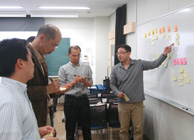
During lectures, discussions are frequently held for students to structurally understand the actual conditions of the multicultural community.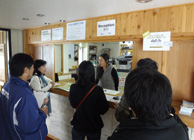
Students go out to communities for fieldwork and to better understand the actual conditions of the multicultural community.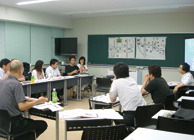
Based on results of the fieldwork, students discuss the actual conditions of the multicultural community and extract problems.
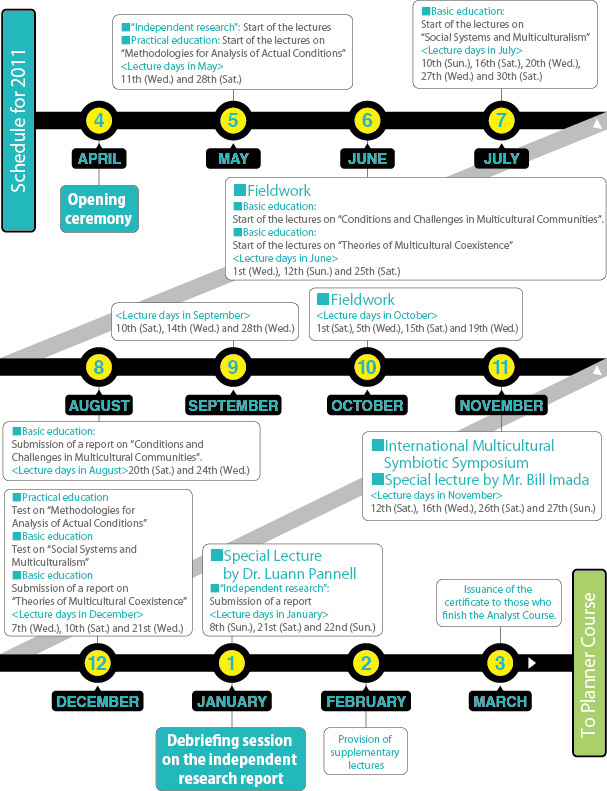 *To make the program more accessible for working adults, classes are mainly conducted from 7:00 pm to 9:00 p.m. on weekdays, or on Saturdays, Sundays and public holidays.
*To make the program more accessible for working adults, classes are mainly conducted from 7:00 pm to 9:00 p.m. on weekdays, or on Saturdays, Sundays and public holidays.
Planner Course
The year-round schedule for the students in the Planner Course in which students learn the case studies related to multicultural coexistence and methods in developing plans to facilitate multicultural coexistence.
The year-round schedule for the students in the Planner Course in which students learn the case studies related to multicultural coexistence and methods in developing plans to facilitate multicultural coexistence.
I would like to extend a sense of multicultural coexistence through knowledge and the methods that I have learned in this training program, and by utilizing the experiences of the volunteer activities.
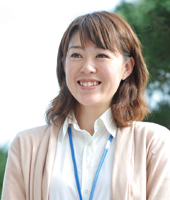
Taxation Section, Prefectural Tax Division, Fujioka Administrative Affairs and Prefectural Taxation Office, West District Prefectural Citizen Affairs Bureau
Maki Nakazawa
■ Profile
Lives in Takasaki City. Took part in volunteer activities as a university student. Works for Taxation Section, Prefectural Tax Division, Fujioka Administrative Affairs and Prefectural Taxation Office, Continues to do volunteer activities at an organization in Gunma Prefecture which manages a foster home in Cambodia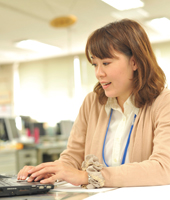
● Why I enrolled
When I was a university student, I was engaged in discussions on the role of the community for things such as sightseeing and environmental protection, at the surrounding area of Sambor Prei Kuk ruins as a student volunteer.Through the good relationship I had with some Cambodians, I found that there was not much difference between Cambodians and Japanese, even though the way of life of Cambodians and Japanese are different. The reason why I was determined to take this program was that I intended to help Japanese society understand foreigners more deeply.
● A supportive family and thoughts for the future
It takes one hour to commute to school from my place of work; however, thanks to the warm support from my family and coworkers, I have had time to study.I am studying this program with the idea of contributing to the community by using what I experienced when I was a university student, and what I learned in this program to give back to the community. In the future, I want to be a bridge between Gunma Prefecture and Cambodia.
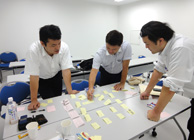
In independent research, plans to resolve problems in the community are made. Students analyze what information should be collected and the actual conditions of the community.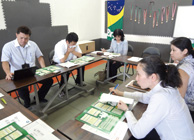
In fieldwork, information is organized and problems are extracted to seek for clues to resolving the problems.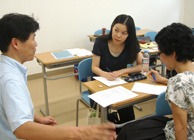
Students discuss concrete plans including directions for resolution ideas and problems while receiving guidance from lecturers.
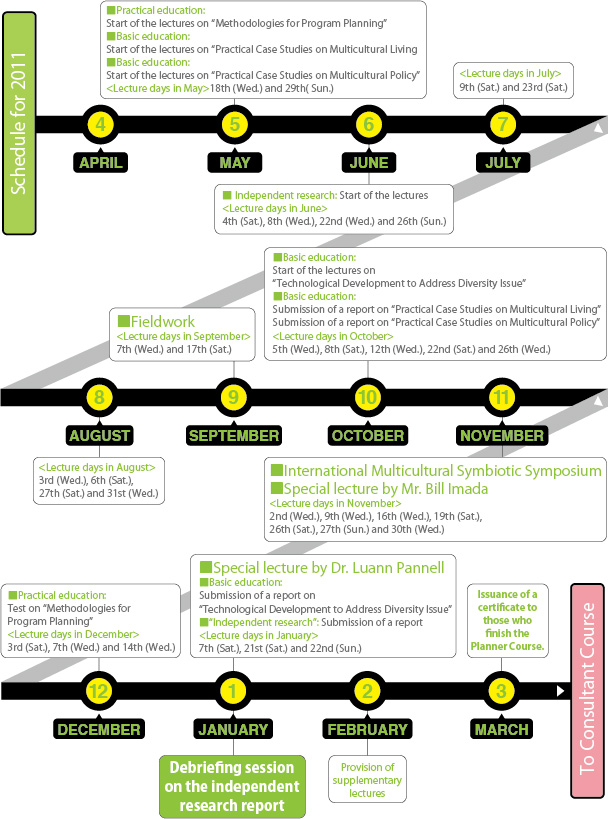 *To make the program more accessible for working adults, classes are mainly conducted from 7:00 pm to 9:00 p.m. on weekdays, or on Saturdays, Sundays and public holidays.
*To make the program more accessible for working adults, classes are mainly conducted from 7:00 pm to 9:00 p.m. on weekdays, or on Saturdays, Sundays and public holidays. 
